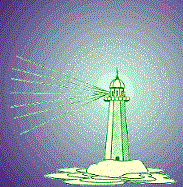 Question
28 from
Question
28 from
The Most Commonly
Asked Questions About
A Course in Miracles
Chapter 3: APPLICATION AND PRACTICE
28) Does A Course in Miracles
have a morality, or a code of ethics?
The answer to this question depends on how morality is defined. The dictionary defines the term as a set of rules or principles of conduct; a system of morals or ethics that defines what is right and what is wrong. Looking at the first part of the definition, A Course in Miracles does not present a set of rules on how one should act in the world, but it most definitely presents a schemata of the post-separation split mind divided into a wrong and right mind, the respective domains of the ego and the Holy Spirit.
From a historical point of view, homo sapiens' sojourn on this planet has been anything but moral, even though civilization after civilization has enacted moral codes that govern the affairs of the everyday life of its citizens. If the inhabitants of any society, nation-state, or civilization are operating from the belief in scarcity, the principle of lack which governs the entire thought system of the ego, the moral codes and laws will inevitably reflect this choice. And the blood-drenched events of history are witnesses to the ego's thought system of "kill or be killed" that is the unconscious underpinning of all the moralities of the world.
Therefore, even though a system of morality might espouse noble ideals, if its origin were the wrong mind, it could never bring about a correction for what is deemed immoral or amoral. Furthermore, how is a society to determine what is right or wrong, and who should be the ones to make such decisions? If one studies the cultures of the past and present, amazement will result when one objectively looks at what is considered right or wrong by any group of people throughout the span of time. For example, during the Inquisition it was considered the highest morality to seek, find, and punish those who did not agree with the Roman Catholic Church, whose teachings were believed to have come from God and Jesus. So, in Their Names, heretics were tortured and killed. Basically then, the group that holds religious, economic, or political power in any society, depending on whether it is a theocratic or secular state, determines what is right and wrong.
A Course in Miracles presents us with a new mode of being in this dream world that is far beyond any morality or rules of conduct to which the world pays homage. This new mode of being asks us to become aware of the thoughts of our wrong minds, and then to ask for help in switching to a correction that already exists in our right minds. In order to accomplish this, we must get our ego selves out of the way and let go of any moral values, desires, or investments in any outcomes, whether they involve conduct, rules, or expectations. The following exhortation from the workbook clearly summarizes this approach of undoing all that we had believed before, so that the Wisdom of God can speak to us and guide our thoughts, words, and behavior:
Simply do this: Be still, and lay aside all thoughts of what you are and what God is; all concepts you have learned about the world; all images you hold about yourself. Empty your mind of everything it thinks is either true or false, or good or bad, of every thought it judges worthy, and all the ideas of which it is ashamed. Hold onto nothing. Do not bring with you one thought the past has taught, nor one belief you ever learned before from anything. Forget this world, forget this course, and come with wholly empty hands unto your God.Therefore, from the perspective of A Course in Miracles, what is "right" is accessing the right mind and following the guidance of the Holy Spirit or Jesus; while what is "wrong" is choosing the wrong mind and listening to the insane voice of the ego's thought system of specialness. We could thus coin a new term -- non-normative ethics -- to denote the Course's unique code for living in this world. What fosters this morality is the daily practice of forgiveness, which undoes the blocks to the presence of the Holy Spirit's Love and wisdom that can flow through our minds to guide our behavior. As Jesus so movingly writes in the workbook:Is it not He Who knows the way to you? You need not know the way to Him. Your part is simply to allow all obstacles that you have interposed between the Son and God the Father to be quietly removed forever. God will do His part in joyful and immediate response (W-pI.189.7:1-8:4).
For this alone I need; that you will hear the words I speak, and give them to the world. You are my voice, my eyes, my feet, my hands through which I save the world (W-pI.rV.in.9:2-3).
Reproduced with the kind permission of Gloria and Kenneth
Wapnick and the Foundation for A Course in Miracles
- ACIM Glossary-Index
- ACIM Theory
- What is Forgiveness?
- Foundation for Inner Peace ACIM-Archival site: ACIM-Archives.org
- Foundation for Inner Peace Online Store Catalog - A Course in Miracles
- Purchase: The Most Commonly Asked Questions About A Course in Miracles
- Foundation for A Course in Miracles Newsletter: The Lighthouse
-
Links